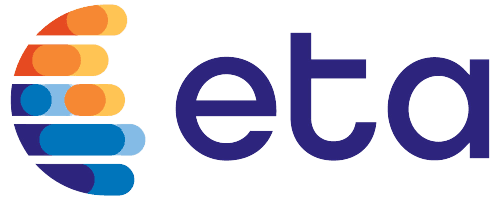Managing your finances effectively means understanding fees that could impact your accounts, including the returned check fee. This charge is applied by banks or financial institutions when a check you write cannot be processed due to insufficient funds in your account. For businesses and individuals alike, knowing what causes this fee, how much it typically costs, and strategies to avoid it can save you money and hassle.
In this guide, we’ll explore returned check fees, their implications, and actionable steps to manage your finances effectively—especially if you're running a high-risk business.
Why Are Returned Check Fees Charged?
A returned check occurs when a bank refuses to process a check because the account linked to it lacks enough funds. When a check bounces, it doesn’t just inconvenience the payee and creates administrative work for the bank, which is passed back to the check writer as fees.
Some common reasons checks are returned include:
- Insufficient Funds: The most frequent cause is when your checking account doesn’t have the required balance.
- Closed or New Bank Accounts: Writing checks from an account that has been closed or is too new for funds to clear.
- Delayed Deposits: If you're waiting on deposits that haven’t cleared, you might issue a check prematurely.
For businesses, returned checks can disrupt cash flow, damage customer relationships, and require additional effort to recover funds.
How Much Do Returned Check Fees Cost?
The cost of a returned check fee varies depending on your financial institution, but it typically ranges between $25 and $40. However, the costs don’t stop there.
Payees—such as landlords, service providers, or vendors—often add penalties for a returned payment. This might include:
- Late Fees: If the payment was for a bill, missing the due date could result in additional charges.
- Service Fees: Many businesses have specific charges for bounced checks to offset their administrative costs.
For example, consider a scenario where:
- Your bank charges a $35 returned check fee.
- Your payee imposes a $25 service fee for the inconvenience.
Suddenly, a single bounced check has cost you $60 or more. Multiply that by multiple returned checks, and the financial impact becomes significant.
Consequences of Returned Check Fees
While a single returned check fee might seem manageable, repeated instances can have far-reaching consequences for your financial health:
1. Credit Score Impacts
Though most bounced checks aren’t directly reported to credit reporting agencies, if a returned payment leads to default or collections, it can harm your credit score.
2. Overdraft and NSF Fees
You could incur an overdraft fee if your bank covers the payment instead of returning the check. Banks often charge between $30 and $35 per overdraft, compounding your financial troubles.
3. Legal Ramifications
Sometimes, writing bad checks can lead to criminal charges, especially if the act is intentional. States have different laws regarding bounced checks, with penalties ranging from fines to jail time for repeat offenders.
4. Strained Relationships
For businesses, returned payments can erode trust with clients or vendors, leading to stricter payment terms or damaged reputations.
How to Avoid Returned Check Fees
Fortunately, there are effective ways to prevent returned check fees and maintain control of your finances:
1. Keep a Cushion in Your Checking Account
Always maintain sufficient funds in your account to cover any checks you issue. A buffer can protect against accidental overdrafts caused by unexpected expenses.
2. Use Overdraft Protection
Most banks offer overdraft protection, which links your checking account to a savings account or credit line. This ensures that funds are automatically transferred to cover a shortfall.
3. Leverage Electronic Payments
Switch to electronic payments, such as credit card transactions or ACH transfers. These methods provide real-time transaction updates, reducing the likelihood of a returned payment.
4. Monitor Your Account Regularly
Make it a habit to balance your account and track pending transactions regularly. Mobile banking apps make this easier than ever, offering real-time updates on your balance and upcoming payments.
5. Educate Yourself on Bank Policies
Different banks and credit unions have varying rules regarding fees and overdraft policies. Understanding your institution’s policies helps you avoid unnecessary charges.
For business owners, implementing policies that minimize the risk of bounced checks—such as requiring deposits or offering payment plans—can reduce the occurrence of bad checks and associated fees.
How Zen Payments Can Help Businesses Manage Returned Payments
If you're a business owner, particularly in a high-risk industry, returned payments can be more than an occasional inconvenience—they can threaten your bottom line. Zen Payments provides tailored payment solutions to mitigate returned checks, chargebacks, and other payment disruptions.
Here’s how we can help:
1. High-Risk Merchant Accounts
Traditional banks often refuse to work with high-risk industries, but Zen Payments specializes in securing approvals for businesses in sectors like nutraceuticals, e-commerce, or online gaming.
2. Fraud and Chargeback Protection
We offer tools to help businesses identify and prevent fraudulent transactions. Reducing fraud lowers the likelihood of returned payments and bad checks.
3. Seamless Payment Processing
Our solutions integrate with major e-commerce platforms, enabling businesses to securely accept credit cards and electronic payments.
4. Simplified Payment Recovery
Dealing with a bounced check can involve chasing down payments. Zen Payments’ systems streamline this process, reducing administrative burdens.
Tips for Businesses to Reduce Payment Risks
Businesses can proactively manage their payment processes by implementing these strategies:
- Accept Alternative Payment Methods: Encourage customers to use credit cards, debit cards, or cashier’s checks instead of personal checks.
- Enforce Clear Payment Terms: Make customers aware of penalties for returned payments upfront to deter bad checks.
- Automate Payment Reminders: Use tools to remind customers of upcoming due dates, reducing the chances of late or bounced payments.
- Screen for High-Risk Customers: using fraud detection tools, Vet customers to identify those likely to issue bad checks.
Zen Payments: The Partner You Can Trust
For over 15 years, Zen Payments has been a trusted provider of high-risk merchant accounts. We understand businesses' unique challenges, from managing returned payments to navigating the complexities of payment processing.
By partnering with us, you gain access to:
- Same-Day Approvals: Get your account up and running quickly.
- Reliable Payment Gateways: Securely process payments and reduce errors.
- Expert Support: Our team works with you to find solutions tailored to your business.
When you choose Zen Payments, you choose a partner dedicated to helping your business succeed in any financial landscape.
Conclusion
Understanding returned check fees and avoiding them is critical for individuals and businesses. Whether you’re striving to maintain a clean personal finance record or streamline payment processing for your business, taking proactive steps can save you time, money, and stress.
Zen Payments offers industry-leading services for businesses looking for a reliable solution to manage payments, reduce risks, and keep your operations running smoothly.
Get started today with Zen Payments and transform how you handle payments.






